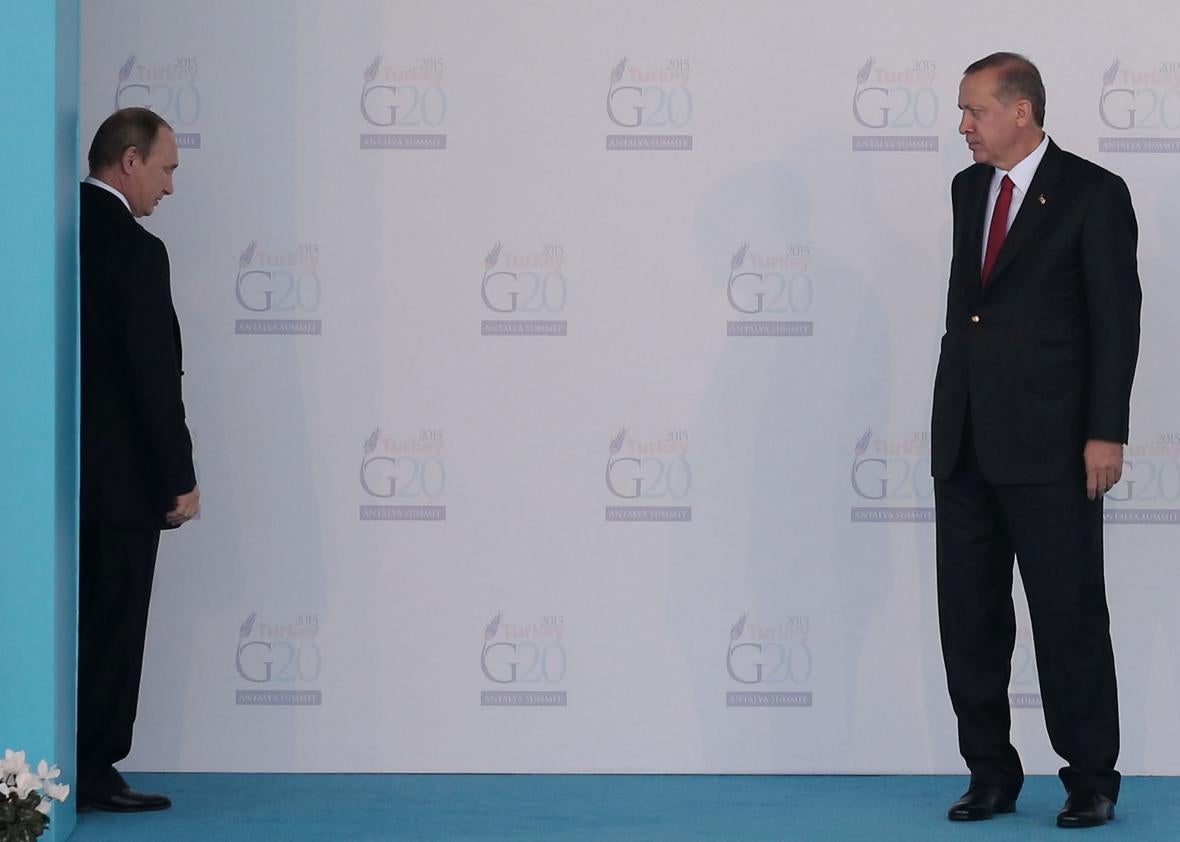If the situation weren’t so tragic and dangerous, there’d be something comical in the current back and forth between Russian President Vladimir Putin and his Turkish counterpart Recep Tayyip Erdogan over which one is responsible for buying oil from ISIS.
Last week, following the shooting down of a Russian fighter by Turkey, Putin accused Turkey of buying oil from the Islamic State, which relies heavily on energy revenues. Deputy Defense Minister Anatoly Antonov then upped the ante by saying that “President Erdogan and his family are involved in this criminal business.” Yesterday, the Russian defense ministry revealed photos purportedly showing Turkish tanker trucks filling up in ISIS-controlled territory, but didn’t release any evidence of Erdogan or his family’s involvement. Most experts say that while there is undoubtedly smuggling of oil and other goods across the Turkish-Syrian border, some of which authorities have turned a blind eye to, it’s unlikely that the Turkish government is profiting from it.
Erdogan has shot back by suggesting that it’s actually Russia that’s benefiting from the oil trade with ISIS. “We have the proof in our hands. We will reveal it to the world,” the president said in a televised address on Thursday. He called the Russian accusations against his government and family “slander.”
Erdogan specifically referred to businessman George Haswani, a Russian-Syrian dual citizen, who was accused by the U.S. Treasury Department last week of facilitating oil deals between the Assad regime and ISIS. (There are some false rumors in Syrian opposition circles that he’s the brother-in-law of Putin.) Erdogan also mentioned a “famous Russian chess player,” a reference to Kirsan Ilyumzhinov, the multi-millionaire head of the World Chess Federation, former president of the Russian Republic of Kalmykia, and (self-proclaimed) UFO abduction survivor, who’s made Zelig-like appearances in several recent global conflicts. (I interviewed him in 2012.) Ilyumzhinov has met frequently with Bashar al-Assad and has also been blacklisted by the U.S. for helping the regime avoid sanctions. His involvement with ISIS is less clear, as is the direct involvement of the Russian government with any of this.
What we do know is that while neither Turkey nor Russia exactly supports ISIS—the group released a video showing the beheading of what it claims was a Russian spy and threatening Russian citizens this week—fighting it is not really the top priority of either country. Turkey is more concerned with overthrowing Assad and containing Kurdish nationalism, Russia is more concerned with protecting Assad and countering U.S. influence. Both Turkey and Russia have arguably taken steps that have benefited ISIS, but the tit-for-tat battle over which government is in business with the Islamic State, and the dubious “proof” being offered, is just distracting.
